This World Wildlife Week, nature lovers relive their memorable trysts with fauna in Maharashtra's forests
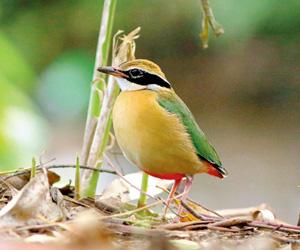
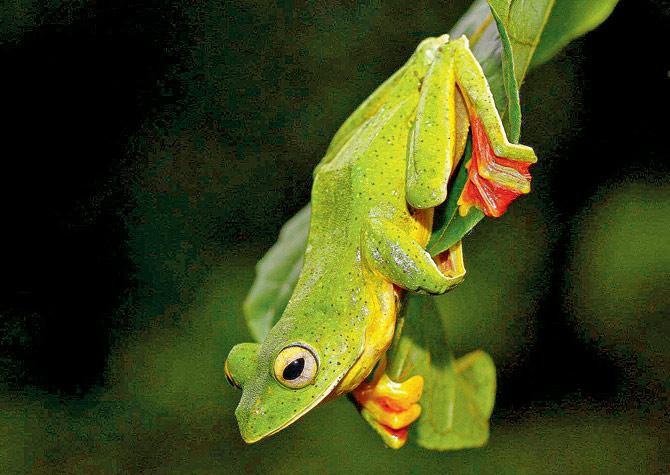
Pic courtesy/ Dr Caesar Sengupta
ADVERTISEMENT
A leap of green
What I spotted
While Maharashtra has several reserves famous for tiger-spotting, namely Melghat, Tadoba, Pench, Nagzira, Sahyadri, Bor, Umred Karhandla and Tipeshwar, Amboli Ghat is not as explored as the others. I have always been fascinated by the lesser fauna of forests and particularly the rain forests. The Malabar Gliding Frogs (in pic) are typical of Amboli. True to their name, they glide from one tree to another with the help of their webbed feet that act as wings. The aren't found elsewhere.
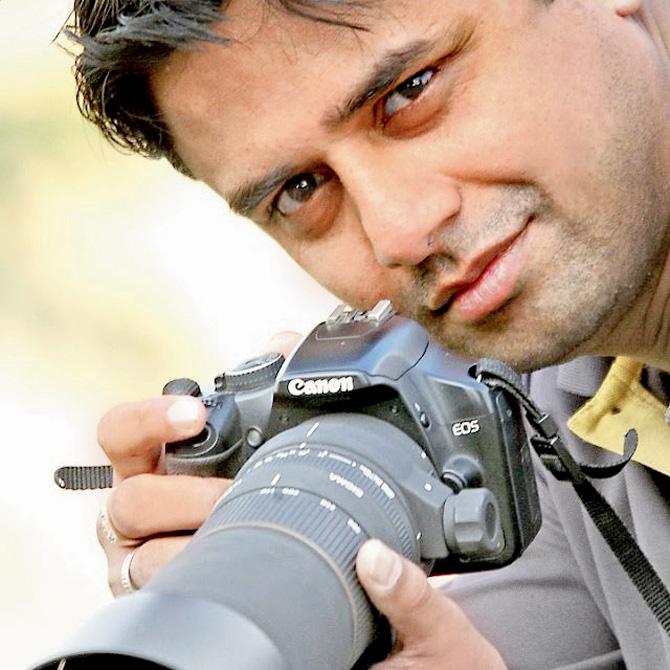
A lifetime memory has to be the frog named after me by Dr SD Biju, Indosylvirana caesari or the Maharashtra Golden-backed Frog, in Koyna. I was part of the research team led by Dr Biju, called Lost Amphibians of India. For several years this frog was called Hylarana temporalis. This study proved that the species is non-existent in India. And the species that was wrongly named is a new species, the Maharashtra Golden-backed Frog.
Best time to spot
Monsoon and post monsoon.
How to get there
Reach Sawantwadi either by road or train (520 km approximately). Amboli is an hour's drive.
Dr Caesar Sengupta, wildlife photographer
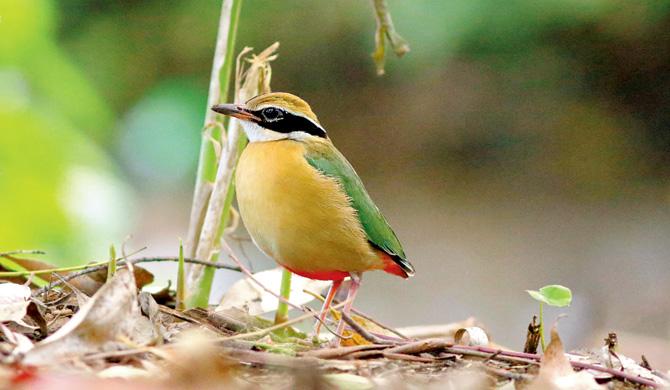
Pic Courtesy/Asif N Khan
Pitta patter with a woodpecker
What I spotted
My favourite sighting has to be the Indian Pitta (Pitta brachyura). In Marathi, the bird is known as navrang (nine colours), an appropriate name for this colourful bird. They are local migrants breeding in the Himalayas and parts of central and western India; you can spot them in Karnala as well. The bird has a beautiful two-note whistle.
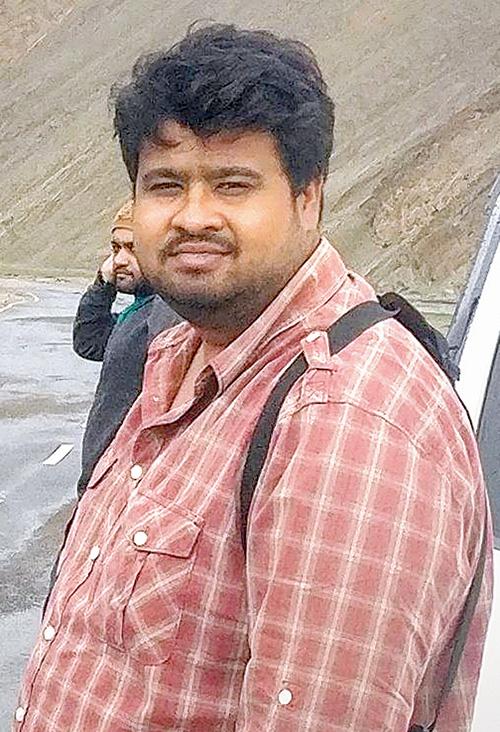
I was birding in Karnala Bird Sanctuary with a few friends from BNHS. We were looking for another interesting bird called the Heart-spotted Woodpecker, when we heard the distinctive two-note whistle of the Indian Pitta. The bird was a lifer (birding term for a species not spotted by you before) for both of us. We located the tree, and saw it flicking its head in rhythm on the top branches. The morning light brought out its colours perfectly. After calling for a while, it came down looking for insects and gave us a chance to photograph it.
Best time to spot
First and second week of June.
How to get there
Panvel is the nearest railway station. Auto-rickshaws and taxis are available from the station to Karnala fort. Karnala is also accessible by road via the Mumbai-Goa highway.
Asif N Khan, associate officer at Bombay Natural History Society
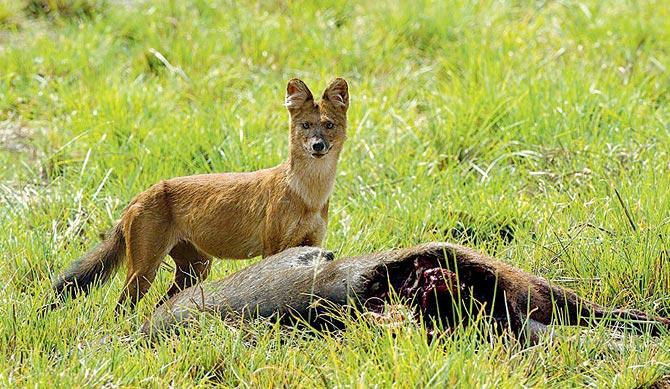
Pic Courtesy/Kedar Bhide
The big chase
What I spotted
I have photographed more wildlife outside of protected areas. But I remember this one shot of wild dogs from Tadoba Andhari Tiger Reserve. While driving through Kolsa range, around one corner, we spotted a group of wild dogs who had just caught a sambar. They were resting around the fallen sambar as they might have been tired after a long chase. It was an unusual opportunity as it is not easy to find a wild dog in chase; you may just spot a tiger but a wild dog is rare.
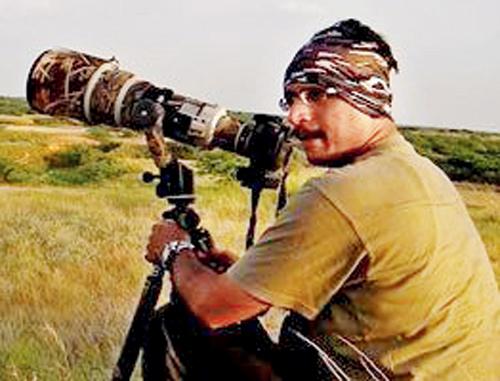
Best time to spot
In the winter months from November to December.
How to get there
Tadoba is accesible by road via Aurangabad-Nagpur highway (857 km). Chandrapur is the nearest railway station.
Kedar Bhide, herpetologist and wildlife photographer
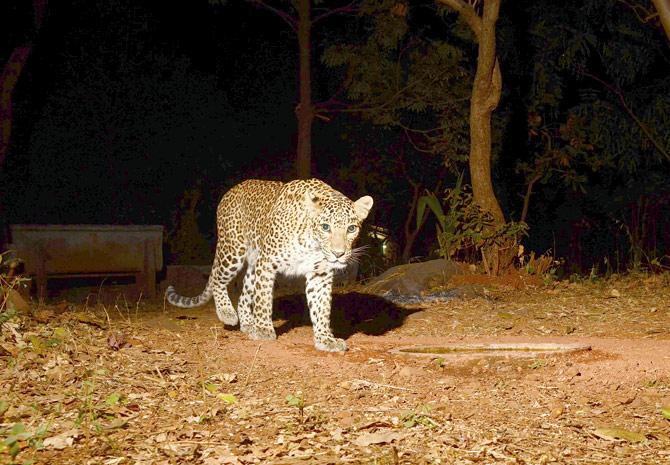
Pic Courtesy/Debi Goenka
12 memorable minutes
What I spotted
My favourite national parks in Maharashtra are Tadoba, Melghat, Tungareshwar, Nandur-Madhameshwar and Pench. But this spotting was when I was at Sanjay Gandhi National Park waiting for my colleagues, who were delayed for a meeting. I decided to go for a walk and took a forest guard along to keep me company. We were walking along the main road, listening to bird calls. At a turning, we saw a leopard walking towards us at a distance of about 30 metres.
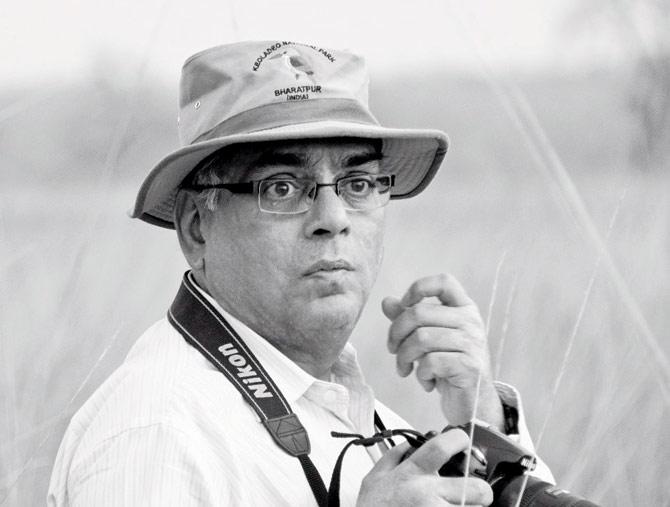
The leopard was as surprised as we were, but didn't appear disturbed. He looked at us and sat on the road. We stood where we were, to see what would happen. This happy state of affairs continued for about 12 minutes. Unfortunately for us, a car drove down disturbing the leopard, who ambled off the road. We waited for a while hoping that the leopard would re-emerge, but he had enough of us. This is the only time that I have seen a leopard while I was on foot. I thanked my colleagues for coming late.
Best time to get there
Throughout the year, post sunset.
How to reach
Borivli is the nearest railway station. Auto-rickshaws and taxis are available outside the station.
Debi Goenka, environmentalist
 Subscribe today by clicking the link and stay updated with the latest news!" Click here!
Subscribe today by clicking the link and stay updated with the latest news!" Click here!






